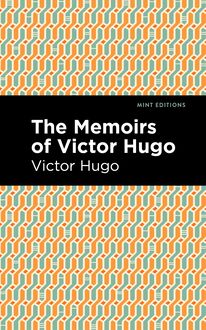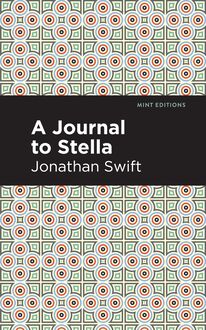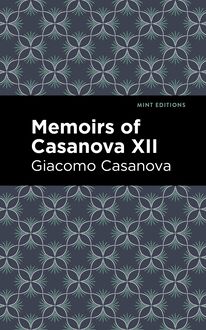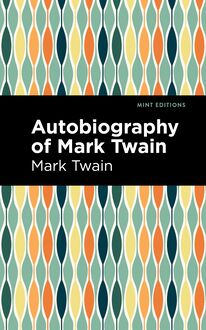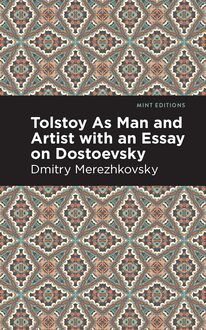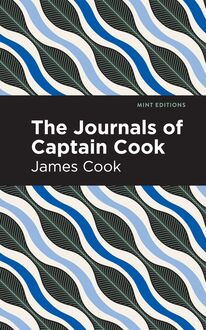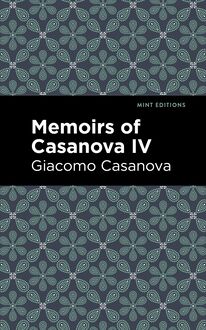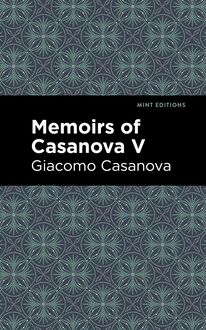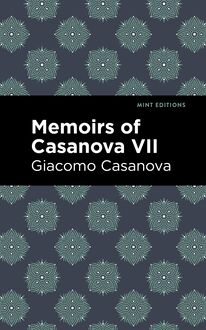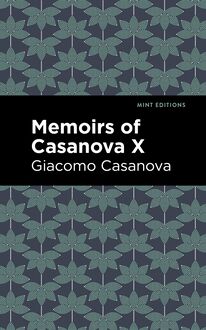-
 Univers
Univers
-
 Ebooks
Ebooks
-
 Livres audio
Livres audio
-
 Presse
Presse
-
 Podcasts
Podcasts
-
 BD
BD
-
 Documents
Documents
-
- Cours
- Révisions
- Ressources pédagogiques
- Sciences de l’éducation
- Manuels scolaires
- Langues
- Travaux de classe
- Annales de BEP
- Etudes supérieures
- Maternelle et primaire
- Fiches de lecture
- Orientation scolaire
- Méthodologie
- Corrigés de devoir
- Annales d’examens et concours
- Annales du bac
- Annales du brevet
- Rapports de stage
La lecture à portée de main
Vous pourrez modifier la taille du texte de cet ouvrage
Découvre YouScribe en t'inscrivant gratuitement
Je m'inscrisTolstoy As Man and Artist with an Essay on Dostoyevsky , livre ebook
Découvre YouScribe en t'inscrivant gratuitement
Je m'inscrisEn savoir plus
Vous pourrez modifier la taille du texte de cet ouvrage
En savoir plus

Description
Tolstoy as Man and Artist with an Essay on Dostoevsky (1901) is a work of literary criticism by Dmitriy Merezhkovsky. Having turned from his work in poetry to a new, spiritually charged interest in fiction, Merezhkovsky sought to develop his theory of the Third Testament, an apocalyptic vision of Christianity’s fulfillment in twentieth century humanity. In this collection of essays on Tolstoy and Dostoevsky, Merezhkovsky explores the spiritual dimensions of the written word by examining the interconnection of being and writing for two of Russian literature’s most iconic writers. For Dmitriy Merezhkovsky, an author who always wrote with philosophical and spiritual purpose, the figure of the artist as a human being is a powerful tool for understanding the quality and focus of that artist’s work. Leo Tolstoy, author of such classics as War and Peace and Anna Karenina, developed a reputation as an ascetic, deeply spiritual man who envisioned his art as an extension of his political and religious beliefs. Dostoevsky, while perhaps more interested in the psychological aspects of human life, pursued a similar path in such novels as The Brothers Karamazov and Crime and Punishment. In Merezhkovsky’s view, these writers came to embody in their lives and works the particularly Russian conflict between truths both human and divine. Tolstoy as Man and Artist with an Essay on Dostoevsky is an invaluable text both for its analysis of its subjects and for its illumination of the philosophical concepts explored by Merezhkovsky throughout his storied career. With a beautifully designed cover and professionally typeset manuscript, this edition of Dmitriy Merezhkovsky’s Tolstoy as Man and Artist with an Essay on Dostoevsky is a classic work of Russian literature reimagined for modern readers.
Sujets
Informations
| Publié par | Mint Editions |
| Date de parution | 08 juin 2021 |
| Nombre de lectures | 0 |
| EAN13 | 9781513288123 |
| Langue | English |
| Poids de l'ouvrage | 3 Mo |
Informations légales : prix de location à la page 0,0500€. Cette information est donnée uniquement à titre indicatif conformément à la législation en vigueur.
Extrait
Tolstoy As Man and Artist with an Essay on Dostoevsky
Dmitry Merezhkovsky
Tolstoy As Man and Artist with an Essay on Dostoevsky was first published in 1901.
This edition published by Mint Editions 2021.
ISBN 9781513283104 | E-ISBN 9781513288123
Published by Mint Editions ®
minteditionbooks .com
Publishing Director: Jennifer Newens
Design & Production: Rachel Lopez Metzger
Project Manager: Micaela Clark
Typesetting: Westchester Publishing Services
C ONTENTS L IFE OF T OLSTOY L IFE OF D OSTOYEVSKY P ART F IRST : T OLSTOY AS M AN AND A RTIST , WITH AN E SSAY ON D OSTOYEVSKY I II III IV V VI VII VIII P ART S ECOND : T OLSTOY AND D OSTOYEVSKY AS A RTISTS IX X XI XII XIII XIV XV XVI
L IFE OF T OLSTOY
1828
Born August 28
1843
Went to Kazan University
1851
Enlisted in the Artillery and went to the Caucasus
1852
Published Childhood, A Landlord’s Morning, The Invaders, The Cossacks (a novel)
1854
Published Boyhood
1855
Became Divisional Commander in the Army
1854–1856
Published Sevastopol Sketches, after serving in the war
1855
Published Youth
1857
Visited Germany, France, Italy, and England, after resigning his commission
Published Memoirs of Prince Nekliudoff (Albert: Lucerne)
1859
Published The Three Deaths (an allegorical story), Family Happiness (a novel)
1860
His brother Nicholas dies in Tolstoy’s arms. The long novel War and Peace is begun
1861
Renewed rupture with Ivan Turgenieff. The Story of a Horse is published
1862
Married Miss Behrs (he, thirty-four, she, eighteen years old)
1863–1878
The Decembrists (published in fragments)
1864–1869
Published War and Peace (his chief novel) written at Yasnaya Poliana
1869
Published A Prisoner in the Caucasus; Stories and Translations for Children
1870
Learned Greek. Spent six weeks in the Bashkir Steppes
1873
Described the Samara famine in newspaper articles. Began Anna Karenina
1873–1876
Published Anna Karenina (his second masterpiece)
1879–1882
Published My Confession
1880–1881
Published, in Russian, at Geneva, a Criticism of Greek Orthodox Theology
1880–1882
Published The Gospels Translated, Compared, and Harmonised
1881
Published What Men Live By (folk-tale)
1884
Published (abroad) My Religion
1884
Published What’s to be Done
1884–1886
Published The Death of Ivan Ilyitch
1885
Published folk tales, such as The Candle, The Two Pilgrims, Ivan the Fool, The Long Exile, etc.
1886
Published folk legends, The Three Old Men, etc.
Published The Power of Darkness (a play)
1887
Published Life
1888
Published Work While You Have the Light
1889
Published The Kreuzer Sonata
Published The Fruits of Enlightenment (a comedy)
1892
Deposited his Memoirs and Diaries in the Rumiantzoft Museum, Moscow
1893
Published The Kingdom of God is Within You
1894
Wrote a preface to Guy de Maupassant’s work. Eng. trans. (1898) Guy de Maupassant and the Art of Fiction
1895
Wrote Master and Man
1898
Published his treatise on Æ sthetics, What is Art?
1902
Serious illness at Yalta
Note .—For a fuller list of dates, see Mr. G. H. Perris’ admirable study, Leo Tolstoy (Fisher Unwin, 1898).— Ed.
L IFE OF D OSTOYEVSKY
1821
Born (October) in Moscow, the son of a surgeon, in a hospital for the poor
1843
Left the Military School of Engineering as a sub-lieutenant
1844
Obtained his discharge from military service to devote himself to literature
1846
Wrote Poor Folk (at the age of twenty-four), a remarkable psychological novel
1849 (April 23)
Arrested, with thirty-three others, for Fourierism, as an opponent of marriage and property
1849 (Dec. 22)
Reprieved, when at the scaffold
1849–1859
Wrote nothing. Spent four years at hard labour in Siberia, and four years in service in the ranks
1858
Returned from Siberia to preach the morality of the “divine spark” even in the pariah, and the Christian “morality of the slave”: of pure unselfishness. He brought back from Siberia a young wife—the widow of a prisoner
1860
Published The Injured and Oppressed (an inferior novel). Became contributor to various Slavophile newspapers
1862
Published Recollections of the House of the Dead (a masterpiece, describing his exile)
1865
Falls into the direst poverty. Loses his first wife, his brother, and child; and escapes abroad to avoid imprisonment for debt. Visits Florence and Baden-Baden
1866
Published Crime and Punishment ; a great picture of the poorer classes in Russian society, teaching the possibility of preserving purity of soul under any circumstances. His penury continues
1868
Wrote The Idiot
1870
Began to write The Brothers L’aramazov , a great psychological novel, of which the first part only, in four volumes, has been finished.
1873
Wrote The Possessed
1873
Published An Author’s Note Book. He spent his remaining years in comparative comfort in St. Petersburg
1880
Delivered a great speech on the future of Russia, on the occasion of the unveiling of a monument to Pouchkine
1881
Died, and was followed to the grave by forty thousand people.
PART FIRST
TOLSTOY AS MAN AND ARTIST, WITH AN ESSAY ON DOSTOYEVSKY
I
In the case of both Tolstoy and Dostoyevsky, but especially in the case of Tolstoy, their works are so bound up with their lives, with the personality of each author, that we cannot speak of the one without the other. Before studying them as artists, thinkers, or preachers, we must know what manner of men they are.
In Russian society, and to some extent among critics, the opinion has taken root that about 1878, and in the early years of the next decade, there took place in Tolstoy a deep-seated moral and religious change; a change which radically transformed not only the whole of his own life, but also his intellectual and literary activity, and as it were snapped his existence into halves. In the first period, people say, he was only a great writer, perhaps too a great man, but at any rate a man of this world with human and Russian passions, grievances, doubts, and foibles; in the second he shook off all the trammels of historical life and culture. Some say that he is a Christian champion, others an atheist, others still that he is a fanatic, a fourth party that he is a sage who has attained the highest moral illumination, and, like Socrates, Buddha, and Confucius, become the founder of a new religion.
Tolstoy himself, in his Confession written in 1879, confirms, and as it were insists on, the unity, unchangeableness, and finality of this new religious birth.
“Five years ago something very curious began to take place in me: I began to experience at first times of mental vacuity, of cessation of life, as if I did not know how I was to live or what I was to do. These suspensions of life always found expression in the same problem, ‘Why am I here?’ and then, ‘What next?’ I had lived and lived, and gone on and on till I had drawn near a precipice: I saw clearly that before me there lay nothing but destruction. With all my might I endeavoured to escape from this life. And suddenly I, a happy man, began to hide my bootlaces, that I might not hang myself between the wardrobes in my room when undressing alone at night; and, ceased to take a gun with me out shooting, so as to avoid temptation by these two means of freeing myself of life.”
From this suicidal despair he was saved, as he conjectures, by becoming friendly with simple believing folk, with the labouring classes. “I lived in this way, that is to say in communion with the people, for two years; and a change took place in me. What befel me was that the life of our class—the wealthy and cultured—not only became repulsive to me, but lost all significance. All our actions, our judgments, science and art itself, appeared to me in a new light. I realized that it was all self-indulgence, that it was useless to look for any meaning in it. I hated myself and acknowledged the truth. Now it had all become clear to me.”
The most guileless, and therefore most valuable and trustworthy of the biographers of Tolstoy, his wife’s brother, S. A. Bers, in his Reminiscences , also speaks of this “transformation” during this decade of his life, which seemed to “wholly alter the mental activity and consciousness of Leo Nicolaievich.”
“The transformation of his personality which has taken place in the last decade is in the truest sense entire and radical. Not only did it change his life and his attitude towards mankind and all living things, but his whole way of thinking. Leo became throughout his being the incarnate idea of love for his neighbour.”
As conclusive is the testimony of his wife, the Countess: “If you could know and hear dear Leo now!” she wrote to her brother early in 1881. “He is greatly changed. He has become a Christian, and a most sincere and earnest one.”
It would be difficult to doubt such forcible and reliable testimony, even if we had not at command a still more trustworthy source, his own artistic creations, which in reality from the first to the last are nothing but one vast diary of fifty years, one endless and minute “confession.” In the literature of all ages and nations there can scarcely be found another writer who has laid bare the private, personal, and sometimes delicate aspects of his own life with such noble and unreserved candour. He seems to have told us everything that he had to tell, and we know all about him that he knows of himself.
It is impossible not to have recourse to this artistic, and consequently unintentional and unforced confession, if we wish to ascertain the real significance of the religious transformation that took place in him at the age of fifty, that is, in the part of his life immediately preceding old age.
In his first work, Childhood, Boyhood, and Youth , a book written when he was twenty, he gives us his still fresh recollections from the age of fourteen to fifteen.
“In the remainder of the year, during which I led a solitary and self-centred moral existence, al
-
 Univers
Univers
-
 Ebooks
Ebooks
-
 Livres audio
Livres audio
-
 Presse
Presse
-
 Podcasts
Podcasts
-
 BD
BD
-
 Documents
Documents
-
Jeunesse
-
Littérature
-
Ressources professionnelles
-
Santé et bien-être
-
Savoirs
-
Education
-
Loisirs et hobbies
-
Art, musique et cinéma
-
Actualité et débat de société
-
Jeunesse
-
Littérature
-
Ressources professionnelles
-
Santé et bien-être
-
Savoirs
-
Education
-
Loisirs et hobbies
-
Art, musique et cinéma
-
Actualité et débat de société
-
Actualités
-
Lifestyle
-
Presse jeunesse
-
Presse professionnelle
-
Pratique
-
Presse sportive
-
Presse internationale
-
Culture & Médias
-
Action et Aventures
-
Science-fiction et Fantasy
-
Société
-
Jeunesse
-
Littérature
-
Ressources professionnelles
-
Santé et bien-être
-
Savoirs
-
Education
-
Loisirs et hobbies
-
Art, musique et cinéma
-
Actualité et débat de société
- Cours
- Révisions
- Ressources pédagogiques
- Sciences de l’éducation
- Manuels scolaires
- Langues
- Travaux de classe
- Annales de BEP
- Etudes supérieures
- Maternelle et primaire
- Fiches de lecture
- Orientation scolaire
- Méthodologie
- Corrigés de devoir
- Annales d’examens et concours
- Annales du bac
- Annales du brevet
- Rapports de stage
